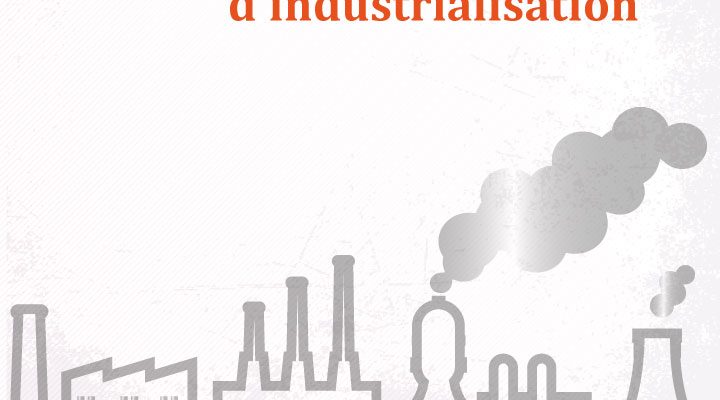Pour les pays africains en cours d’industrialisation, il y a encore une vingtaine d’années, l’île Maurice dépendait majoritairement de la culture de la canne à sucre. Le seuil de pauvreté de cette île était similaire à celui présenté par la plupart des pays africains. Depuis, cet état africain est parvenu à diversifier son économie, grâce à une conversion dans l’industrie manufacturière et le tourisme. L’île Maurice a également réussi à susciter l’intérêt des investisseurs étrangers et ainsi garantir à ses habitants des revenus très supérieurs à la moyenne du continent.
L’Afrique tente de redynamiser ses industries
La majeure partie des pays africains doivent désormais faire face au problème qu’a connu Maurice il y a plus de 20 ans de cela. Ils continuent à produire et exporter principalement des produits agricoles ou minéraux non transformés, alors que le prix de ces matières premières ne cesse de chuter sur les marchés mondiaux. Pour pallier à cette problématique, certains d’entre eux s’efforcent de suivre l’exemple de Maurice, en développant résolument et activement leurs industries manufacturières.
L’Afrique du Sud, pays qui s’est développé grâce aux revenus générés par ses mines d’or et de diamants, prépare actuellement de nouvelles mesures législatives qui visent à encourager les entreprises à transformer les minerais avant de les exporter. Au Botswana, pays voisin, la relance du programme d’industrialisation s’explique par le fait que l’économie ne peut dépendre uniquement d’un seul produit, le diamant. C’est également le cas d’un nombre restreint mais croissant de pays africains, dont la Namibie.
L’Afrique semble désormais s’engager sur une nouvelle voie. Celle-ci se caractérise par la mise en place de réformes économiques, une volonté plus forte de multipartisme, un recul des conflits et des politiques plus favorables à l’investissement privé.
L’Afrique du Nord : montée en gamme industrielle
La transition industrielle au Maroc, en Tunisie ou encore en Égypte s’effectue à grande vitesse. Parmi les exportations réalisées par ces pays, les produits manufacturés, machineries et équipements de transport connaissent une progression alors que les industries textile et agricole régressent.
Désormais, les exportations de produits manufacturés représentent plus de 30 % du total des exportations en Égypte ainsi qu’au Maroc et près de 40 % en Tunisie. La montée progressive des industries à plus forte valeur ajoutée (chimie, pharmacie, électronique, etc.) peut être constatée. Néanmoins leur contribution aux exportations demeure marginale (environ 5 % pour le Maroc et l’Egypte et 10 % pour la Tunisie).
Pour s’industrialiser, ces trois pays nord-africains ont entamé la substitution de la production intérieure aux importations et deviennent même exportateurs. Cette montée en gamme de l’économie s’appuie, la plupart du temps, sur des partenariats de coproduction mis en place avec quelques pays européens, à l’instar du développement des filières automobiles et aéronautiques en Tunisie et au Maroc.
Entre espoir et déception : le rôle des entrepreneurs
De nombreuses personnes s’interrogent sur la capacité des entrepreneurs à accélérer l’industrialisation de l’Afrique. La croissance du continent africain a presque stagné ces dernières années. En effet, celle-ci était de 2,2 % en 2016. Cette année se caractérise par la baisse des prix des matières premières, des conditions climatiques difficiles et un ralentissement de l’économie chinoise.
La croissance soutenue des économies africaines non exportatrices de matières premières illustre parfaitement le besoin de plus en plus pressant d’assurer la promotion de l’industrialisation. Cette dernière étant un moteur pour l’innovation, l’amélioration de la productivité et la création d’emplois.
La mise en place de nouvelles industries permettrait d’optimiser le potentiel non seulement du secteur manufacturier mais également d’autres secteurs d’activité. Les progrès technologiques associé à un environnement économique mondial favorable peuvent soutenir les stratégies d’industrialisation déjà en place dans plus de 26 pays africains.
En s’appuyant sur une stratégie collaborative, ils doivent être en mesure de promouvoir de nouvelles opportunités pour canaliser le potentiel de forte croissance des secteurs non dépendants des matières premières.
Certaines régions africaines sont parvenues à augmenter leur productivité en transférant les emplois de l’agriculture vers le secteur manufacturier.
Au-delà du secteur manufacturier, d’autres secteurs tels que l’entreprenariat non agricole peut être bénéfique. Les stratégies d’industrialisation constituent des bases solides permettant de puiser dans le grand réservoir d’entrepreneurs africains.
En effet, l’Afrique est le continent qui abrite la proportion la plus forte d’entrepreneurs. 22 % des Africains en âge de travailler créent de plus en plus leur propre entreprise. En se lançant dans des activités innovantes, même si ces dernières comportent des risques financiers, ces entrepreneurs sont à l’origine de la création d’emplois. Ces nouveaux types d’activités impliquent également de faire appel à des salariés qualifiés.
Les jeunes entrepreneurs constituent les maillons essentiels de l’industrialisation. Les entreprises ayant moins de cinq ans et comprenant moins de 20 employés fournissent la majorité des emplois dans le secteur formel. Alors que la plupart des entrepreneurs africains (environ 55 %) évoluent dans des secteurs à faible productivité tels que le commerce de détail. Pour répondre à cette problématique et favoriser l’industrialisation, des passerelles doivent être mises en place pour permettre aux jeunes entrepreneurs de se tourner vers des secteurs à forte productivité tels que la transformation, les services marchands et l’agro-alimentaire.
Lire aussi : https://www.afrikatech.com/fr/industry/les-pays-en-cours-dindustrialisation-en-afrique-lethiopie/


Leave a Reply